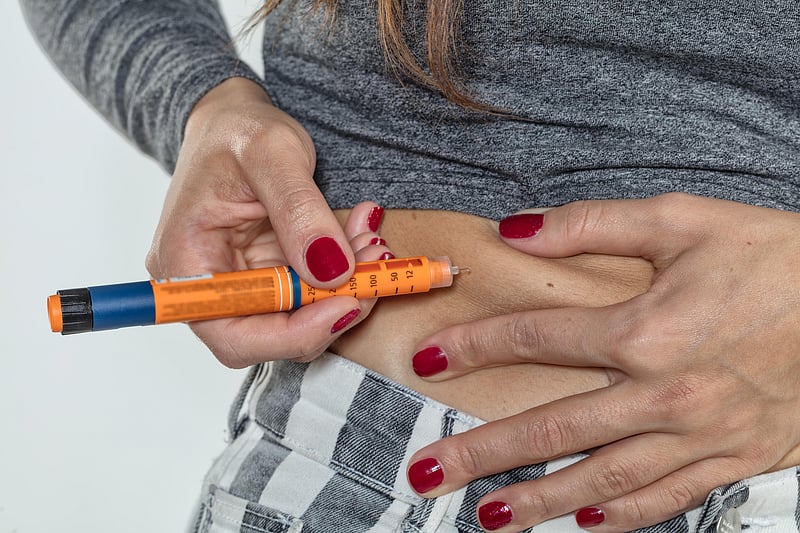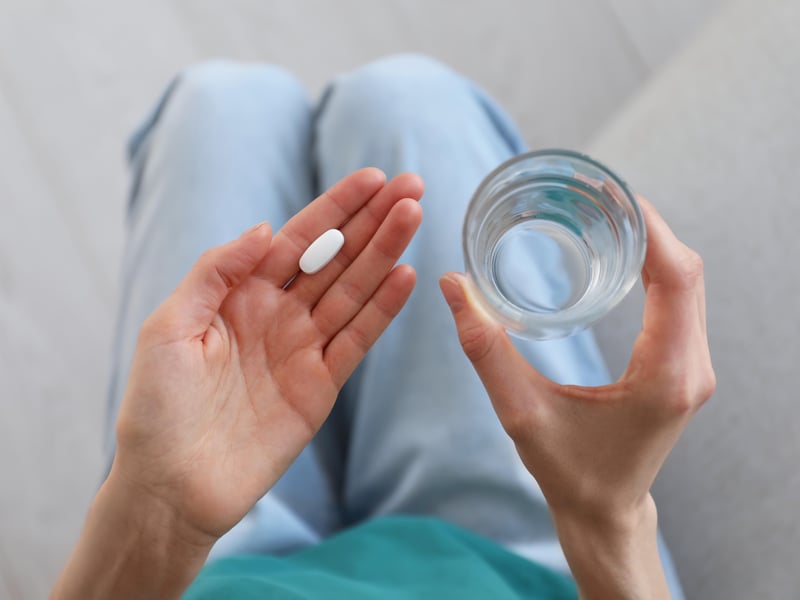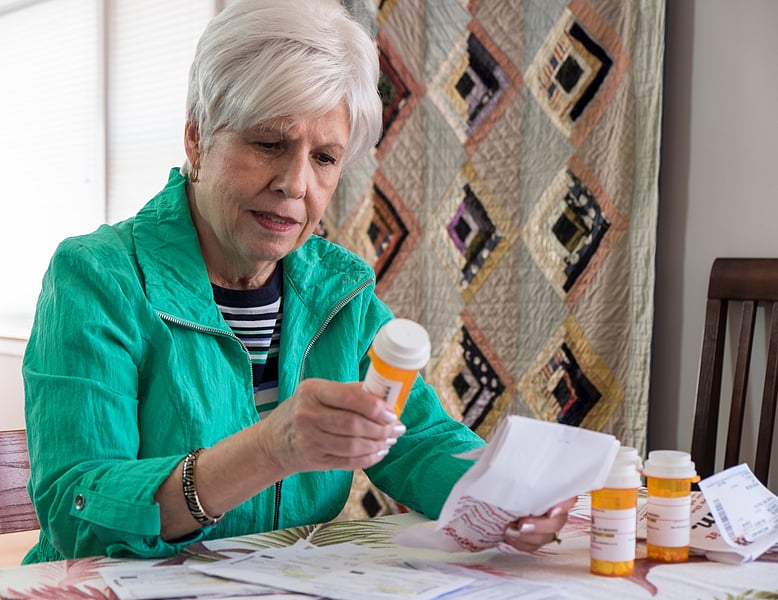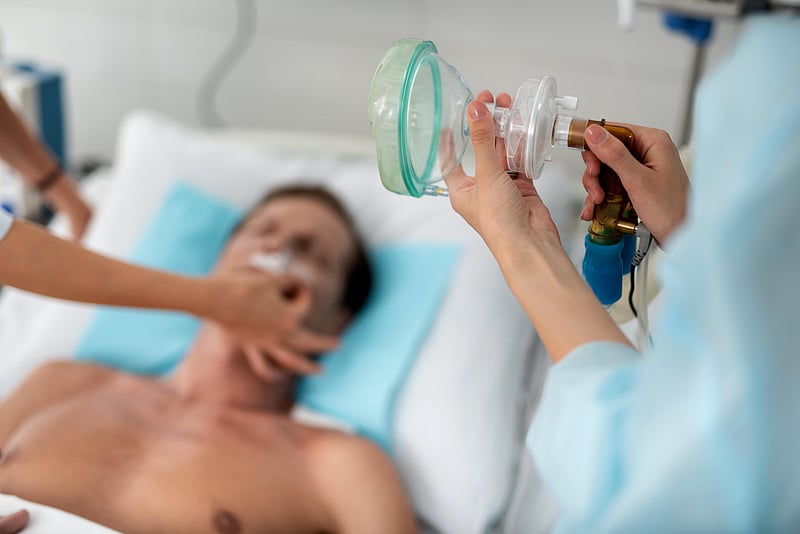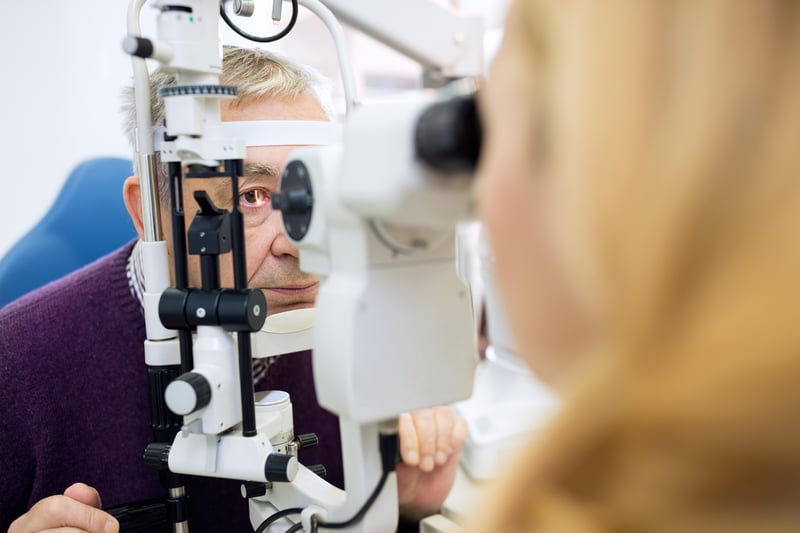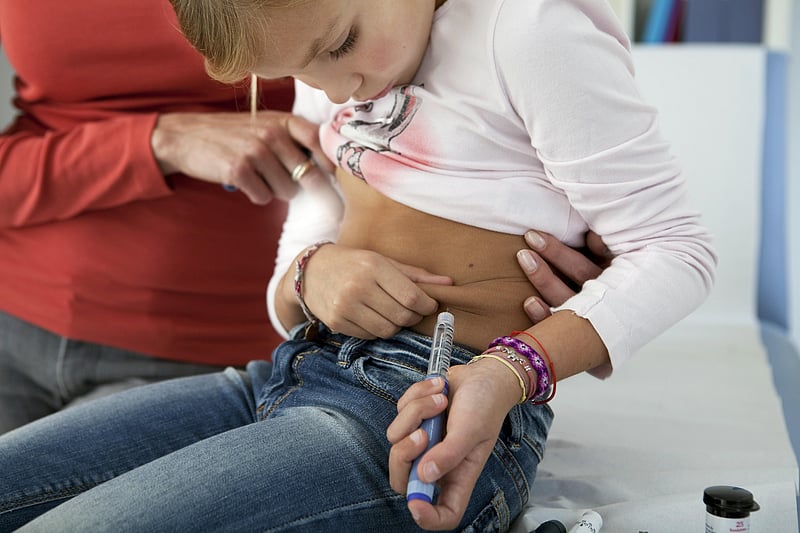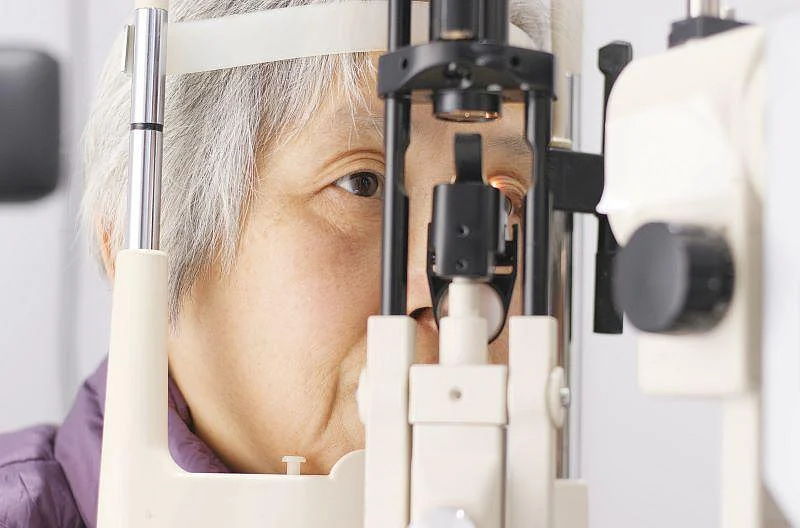Get Healthy!
Results for search "Diabetes: Management".
Health News Results - 56
Preventing diabetes can be as good for a person’s wallet as it is for their health, a new study says.
People participating in a diabetes prevention program saved more than $5,000 in direct medical costs over two years, researchers reported recently in the journal
Diabetics who sleep too little or too much are more likely to suffer damage to their small blood vessels, a condition that can cause organ damage throughout their bodies.
Short sleep duration is tied to a 2.6 times increased risk of small blood vessel damage, also known as microvascular disease, in people with diabetes, a new study reports.
Likewise, the study found long sleep durat...
- Dennis Thompson HealthDay Reporter
- |
- July 15, 2024
- |
- Full Page
The U.S. Food and Drug Administration on Tuesday approved the country's first continuous glucose monitor for type 2 diabetes.
The new Dexcom Stelo Glucose Biosensor System, which will be available by summer, is intended for people 18 and older who have type 2 diabetes but do not take insulin, according to the agency.
Also known as CGMs, these monitors consist of tiny sensors that pr...
- Robin Foster HealthDay Reporter
- |
- March 6, 2024
- |
- Full Page
Yogurt makers can now make limited claims about the food's power to help prevent type 2 diabetes, the U.S. Food and Drug Administration says.
In a statement released Friday, the agency said it will not object to "qualified health claims" that say th...
- Robin Foster HealthDay Reporter
- |
- March 4, 2024
- |
- Full Page
WEDNESDAY, Nov. 29, 2023 (Healthday News) -- The diabetes drug Mounjaro prompted more weight loss among overweight and obese adults than Ozempic did in a real-world setting, researchers report.
Both Mounjaro (tirzepatide) and Ozempic (semaglutide) mimic the effects of the gut hormone GLP-1, which triggers insulin production, helps control appetite and slows the movement of food through th...
- Robin Foster HealthDay Reporter
- |
- November 29, 2023
- |
- Full Page
For certain patients with advanced breast cancer, a drug called Piqray (alpelisib) may extend survival. But new research confirms the medication often causes seriously high blood sugar levels.
"This is a very effective drug that we should be using to treat breast cancer, but the problem is that it causes high blood sugar, which also can decrease the efficacy of the medication,"explained s...
- Denise Mann HealthDay Reporter
- |
- September 25, 2023
- |
- Full Page
One day, it may be possible to monitor people for risk of disease through continuously measuring skin temperature.
Researchers have found in a new study that wrist temperature is associated with future risk of disease.
"These findings indicate the potential to marry emerging technology with health monitoring in a powerful new way,"said senior author
Staying up late comes naturally to some folks, whether they're working or relaxing deep into the night.
But being a night owl might come at a cost to one's health.
People who are night owls have a higher risk than early birds of becoming diabetic, a new study has found.
"We found that night owls were at 72% increased risk of developing diabetes when we compare them to early bi...
- Dennis Thompson HealthDay Reporter
- |
- September 12, 2023
- |
- Full Page
People with type 2 diabetes could soon have access to convenient once-a-week insulin shots that could replace the daily injections now required.
A once-weekly insulin formulation called icodec performed just as well as daily doses of the insulin degludec, phase 3 clinical trial results show.
Icodec now awaits approval by the U.S. Food and Drug Administration based on these results, ...
- Dennis Thompson HealthDay Reporter
- |
- July 17, 2023
- |
- Full Page
A bunch of healthy fruits and vegetables could be just what the doctor ordered.
Nonprofit groups and public health agencies have experimented with the idea of a produce prescription over the years. Now, a new study simulates what would happen if patients with diabetes and diet-related conditions were given free or discounted produce and nutrition education nationwide.
The researcher...
- Cara Murez HealthDay Reporter
- |
- July 13, 2023
- |
- Full Page
You have been diagnosed with type 2 diabetes. What are your medication options?
That depends on what type of diabetes you have and what risk factors you carry.
In type 2 diabetes, the body becomes resistant to the insulin and the pancreas has to make more. Insulin resistance can be caused by obesity, lack of exercise, medication, stress or hereditary factors. Initially, the pancreas...
- Susan E. Spratt, MD Associate Professor of Medicine, Duke University School of Medicine HealthDay Reporter
- |
- July 5, 2023
- |
- Full Page
Pairing exercise with a 10% weight loss can make a major health improvement in people living with obesity and prediabetes, a new study says.
Building in regular exercise more than doubled sensitivity to insulin compared to just weight loss alone. This has the potential to prevent or delay prediabetes from progressing into type 2 diabetes while also decreasing the risk of heart diseas...
- Cara Murez HealthDay Reporter
- |
- June 29, 2023
- |
- Full Page
Gastric bypass surgery is a potential long-term cure for type 2 diabetes, especially if the procedure is performed before the disease progresses, a new study argues.
Among a large group of obese people with type 2 diabetes, about half achieved remission for an average seven years after undergoing gastric bypass surgery -- the longest follow-up ever for such a group, researchers said.
<...- Dennis Thompson HealthDay Reporter
- |
- June 27, 2023
- |
- Full Page
Nearly 10 million Americans are at risk for blindness from diabetic retinopathy, a new study finds.
In 2021, an estimated 9.6 million people in the United States -- 26% of those with diabetes -- had the eye illness and nearly 2 million had the most severe form, "vision-threatening diabetic retinopathy" (VTDR), researchers say. That's 5% of those with diabetes.
"
How prohibitive is the cost of diabetes care?
For American patients, including those with insurance, the full scope of related expenses is often so onerous that some have turned to crowdfunding platforms like GoFundMe as a way to raise cash for care, new research shows.
Despite the fact that insulin is largely free or low-cost for many, the price of many other basics of diabet...
- Alan Mozes HealthDay Reporter
- |
- June 13, 2023
- |
- Full Page
The number of American women who have diabetes when they become pregnant has increased dramatically over five years, health officials reported Wednesday.
Between 2016 and 2021, the rate of pregnancy among diabetic women has risen 27%, from about 9 per 1,000 births to 11 per 1,000 births, according to the re...
- Steven Reinberg HealthDay Reporter
- |
- June 1, 2023
- |
- Full Page
If you're one of the millions of folks living with type 2 diabetes, you know that regular exercise can help you keep your blood sugar in check.
Now, new research suggests that working out in the afternoon may help maximize these benefits.
The new study wasn't designed to say how, or even if, exercising in the afternoon is better for blood sugar control, but researchers have som...
- Denise Mann HealthDay Reporter
- |
- May 30, 2023
- |
- Full Page
COVID-19 hospitalizations in the United States fell below 9,000 in the past week, the first time that milestone has been reached since tracking began in the summer of 2020.
The U.S. Centers for Disease Control and Prevention reported that hospitalizations were at 8,256...
- Cara Murez HealthDay Reporter
- |
- May 30, 2023
- |
- Full Page
Having higher blood sugar can lead to quicker loss of brain power after a stroke, a new study suggests.
High blood pressure and cholesterol were not associated with a similar mental loss, even in those at higher genetic risk for dementia.
"Having a stroke increases a person's risk of dementia up to 50-fold, but we lack a comprehensive treatment approach that could reduce this risk, ...
- Cara Murez HealthDay Reporter
- |
- May 19, 2023
- |
- Full Page
Could a one-hour procedure that involves zapping a part of the intestines mean no more insulin for millions of folks with type 2 diabetes?
Maybe, according to a small study scheduled for presentation next week at the Digestive Disease Week meeting in Chicago.
The new minimally invasive procedure used controlled electrical pulses to change the lining of the first part of the small i...
- Denise Mann HealthDay Reporter
- |
- May 1, 2023
- |
- Full Page
While the immediate goal of bariatric surgery is to help obese patients shed significant weight, new research shows it may also reduce diabetes complications, including nerve damage.
Investigators followed 127 weight-loss surgery patients for two years. They found the surgery led to a sustained drop in previously high blood sugar (glucose) levels as well as in levels of certain lipids (fa...
- Alan Mozes HealthDay Reporter
- |
- April 12, 2023
- |
- Full Page
Electrical stimulation from a spinal cord implant can provide long-lasting relief for people with diabetic neuropathy, updated clinical trial results show.
"Two years after starting with using that stimulator device, they're still having the same quality of improvement as what we first saw,"said lead researcher
While people with type 1 diabetes can see some benefit from newer medications prescribed off-label, there is also risk, and these patients should be monitored closely, according to a new study.
Type 1 diabetes is universally treated with insulin injections, but only about one-fifth of patients achieve blood sugar control with it,
You might think about cholesterol when you consider your cardiovascular health.
It's also important to consider your A1C levels.
Sugar is just as bad for your heart as cholesterol -- if not worse, said Dr. Daniel Lodge, a thoracic surgeon at Penn State Health Specialty S...
- Cara Murez HealthDay Reporter
- |
- February 12, 2023
- |
- Full Page
The U.S. flu season is expected to extend into spring, and experts say it's not too late to get a flu shot.
Last year's flu season was mild, but this season has already seen triple the number of flu-related deaths in the United States.
"Even a minor respiratory virus can be hard on someone with lung disease, and the flu is especially challenging,"said
Mila Clarke started taking Ozempic in 2020 to help manage her diabetes, but was pleasantly surprised to find herself soon shedding pounds.
"I was like, this is really weird because I'm not having to try very hard to do this,"said Clarke, who has been diagnosed with both type 1 and type 2 diabetes and chronicles her diabetes journey on her
- Dennis Thompson HealthDay Reporter
- |
- February 1, 2023
- |
- Full Page
An artificial pancreas has long been considered the holy grail for people with type 1 diabetes, and new research suggests a more convenient version of this technology may help the millions of people living with type 2 diabetes.
Type 2 is the more common form of diabetes, and is clos...
- Denise Mann HealthDay Reporter
- |
- January 13, 2023
- |
- Full Page
Women who had diabetes during pregnancy might want to treat themselves to another cup of joe.
New research shows that drinking coffee may lower their risk of type 2 diabetes.
Compared to the general female population, women who had gestational diabetes may have 10 times the risk for type ...
- Cara Murez HealthDay Reporter
- |
- December 26, 2022
- |
- Full Page
Move your body every day to guard against type 2 diabetes.
That's the upshot of a new study that analyzed Fitbit data and type 2 diabetes rates from participants in a nationwide research program, reporting that women who logged more steps each day had a lower risk of diabetes.
"We investigated the relationship between physical activity and type 2 diabetes with an innovative approach...
- Cara Murez HealthDay Reporter
- |
- December 23, 2022
- |
- Full Page
Insulin pumps can help folks with type 1 diabetes get better control of their disease and minimize how often they inject insulin, and use of the devices has taken off in the past 20 years.
That's the good news from a new study.
The not-so-great news is that a large gap in wh...
- Denise Mann HealthDay Reporter
- |
- December 13, 2022
- |
- Full Page
Scientists have used a transplant procedure to apparently cure diabetes in lab mice, without the need for immune-suppressing drugs afterward.
The success is a first step in developing a safer way to use cell transplants to possibly cure type 1 diabetes. But that's a long way off, researchers said -- and findings in mice often fail to translate to humans.
In type 1 diabetes, the body...
- Amy Norton HealthDay Reporter
- |
- November 8, 2022
- |
- Full Page
Yoga, meditation and other mindfulness practices may help people with type 2 diabetes lower their blood sugar -- nearly to the degree that standard medications like metformin do, a new analysis suggests.
That does not mean people should swap their medication for
Nerve damage is a common side effect of type 2 diabetes and it might start in the eyes long before the condition is ever diagnosed, new research suggests.
In this study, scientists used neuropathy, or nerve damage, in the eye's cornea as a proxy for the damage to nerves throughout the body.
The study included nearly...
- By Cara Murez HealthDay Reporter
- |
- September 23, 2022
- |
- Full Page
The U.S. Food and Drug Administration is warning patients who use a particular insulin pump system that unauthorized people could access it and change how much insulin a patient receives.
The pump at the center of the FDA alert is the Medtronic MiniMed 600 Series Insulin Pump S...
- By Cara Murez HealthDay Reporter
- |
- September 20, 2022
- |
- Full Page
A half-century-old diabetes drug appears to help treat bipolar disorder by reversing patients' insulin resistance, according to a small-scale clinical trial.
Bipolar patients who responded to the drug metformin experienced improvement in their
Annual wellness visits covered by Medicare reduce diabetes patients' risk of amputation by more than one-third, a new study finds.
"Our results confirmed our hypothesis that Annual Wellness Visits are associated with a reduced risk of major lower-extremity amputations, highlighting the importance of con...
- By Robert Preidt HealthDay Reporter
- |
- June 20, 2022
- |
- Full Page
Overall use of insulin pumps among U.S. youngsters with type 1 diabetes has climbed in recent decades, but those who are poor or from minority groups are less likely to have the devices, a new study finds.
Insulin pumps, which do away with the need for numerous painful injections, have been shown to ...
- By Robert Preidt HealthDay Reporter
- |
- June 15, 2022
- |
- Full Page
Open-source automated insulin delivery (AID) systems are an effective and safe way for people with type 1 diabetes to control their blood sugar levels, researchers say.
The AID systems combine an insulin pump, a contin...
- By Robert Preidt HealthDay Reporter
- |
- June 7, 2022
- |
- Full Page
High-tech devices and communication helped ease the impact of COVID-19 lockdowns on children with type 1 diabetes, researchers said in a new study.
Pandemic shutdowns caused significant disruptions in health care, and previous studies have shown that diabetes patients had worse blood sugar (glucose) control and more difficulty accessing care during the early days of the pandemic.
Bu...
- By Robert Preidt HealthDay Reporter
- |
- June 7, 2022
- |
- Full Page
Correcting low blood sugar in infants reduces their risk of brain development problems later in life, new studies show.
Low blood sugar (hypoglycemia) is common in babies, affecting more than 1 in 6. Glucose (sugar) is the main source of energy for the brain, and untre...
- Robert Preidt HealthDay Reporter
- |
- April 4, 2022
- |
- Full Page
Your 30s can be a magical time filled with career strides, vacations you can actually afford, love, marriage and even a growing family of your own.
It's likely not the decade where you begin to fret about your risk for developing Alzheimer's disease in the future. But maybe it should be.
This is the main takeaway from new research based on data from the multi-generational
Older adults may not only be living longer, but better as well, according to a new U.K. study.
Researchers found that since the 1990s, British adults age 65 and up have been enjoying more years living independently, free of disability.
That's despite the fact that many chroni...
- |
- March 17, 2022
- |
- Full Page
Are you managing a chronic health problem, be it obesity or diabetes or heart disease or asthma?
There's likely an app for that.
Health apps are becoming more and more sophisticated, offering smartphone users help in dealing with chronic ailments, said Dr. David Bates, chief of internal med...
- |
- March 4, 2022
- |
- Full Page
Newly diagnosed diabetes in many COVID-19 patients may be a temporary type triggered by COVID, according to a new study.
Blood sugar levels returned to normal in about half of the newly diagnosed diabetes patients after they left the hospital, and only 8% required insulin after one year, according to the report published online recently in the
Mobile health apps can help older Americans but only about four in 10 use them, and those most likely to benefit are least likely to take advantage of them, a new survey reveals.
Health apps monitor everything from calories and exercise to blood pressure and blood sugar to help users manage chronic conditions or achieve health goals.
"Now that most older adults have at least one mob...
- |
- February 14, 2022
- |
- Full Page
Having a child with type 1 diabetes can be a challenging health condition for parents to manage, but new research suggests an "artificial pancreas" system may beat standard treatment in controlling the blood sugar disease in young children.
Forms of the technology -- which automatically monitors and regulates blood sugar -- are already available for adults and kids with
Scientists have known for 100 years that insulin is the body's main mechanism for controlling blood sugar levels, but researchers have now discovered a second hormone does the same job a bit differently -- and they say it could be a new target for treating diabetes.
The hormone, called FGF1, is produced in the body's fat tissue. Like
A leading medical group has updated a guideline for treating pain and numbness caused by diabetes.
The problems, which affect the hands and feet, are the result of nerve damage, also known as diabetic neuropathy. The new guideline from the Ame...
- Cara Murez
- |
- December 30, 2021
- |
- Full Page
Hiking and skiing in the mountains may wreak havoc on the blood sugar levels of those with type 1 diabetes, new research suggests.
Exercise offers many benefits -- such as improved heart health, better insulin sensitivity and quality of life -- for people with diabetes and is often recommended by the...
- Robert Preidt
- |
- December 28, 2021
- |
- Full Page








